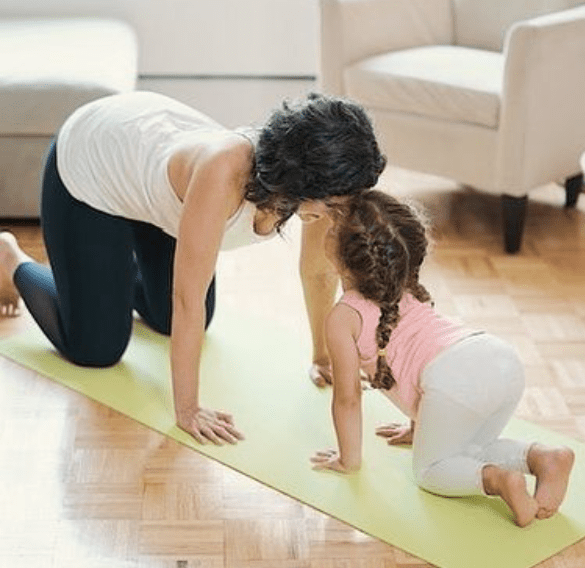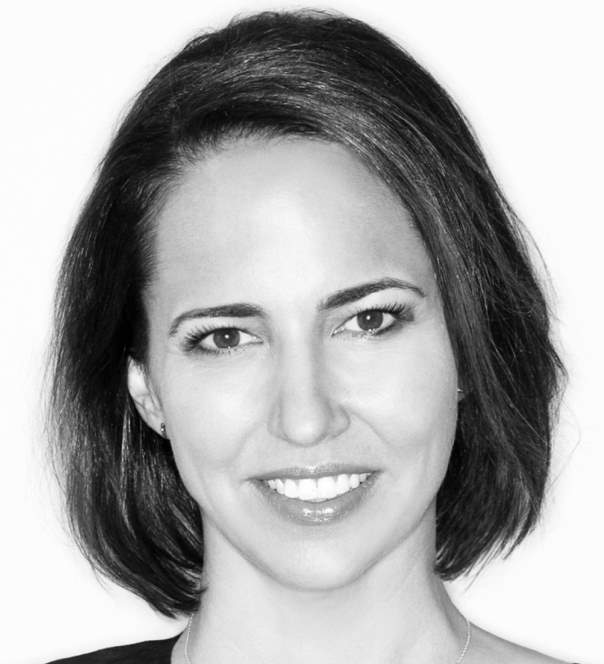Alisa Vitti, HHC, AADP, is a font of knowledge about women’s hormonal health and the role nutrition plays in how we function optimally in our daily lives. She’s an integrative nutritionist, hormone expert, and best-selling author of WomanCode and In the Flow, and the founder of FLOliving.com, which helps women address their common menstrual, fertility and perimenopause symptoms naturally. A graduate of Johns Hopkins University and the Institute for Integrative Nutrition, Alisa is a regular contributor to Women’s Health, MindBodyGreen, and The Huffington Post. I’d heard her speak on podcasts and read her books, but in 2019 I had the opportunity to meet her in person. Her own health journey was quite dramatic, and I’ve never forgotten her story of taking to the library after her own experiences with doctors left her with few answers and little hope. She went on to build FLO Living, one of the first femtech companies, which celebrates its 10 year anniversary this year, and began using her platform to change the cultural narrative around women’s hormones for a much needed better future for women’s health care. When I had the chance to catch up with her recently, I found out she’d recently bought a house, where she’s raising her family, planting a garden, and quite literally putting down roots! Our conversation was long and fruitful, and has been edited below for length and clarity.
Anne You’re one of the first people I ever spoke to about the connection between plants, herbs, supplements and health, specifically women’s health — and I know it started with your own personal health journey. Can we start with your own story?
Alisa I think it started in childhood when I was clearly showing signs of metabolic issues. I wasn’t developing the same way that other girls my age were. Fast forward to nearly 16 and I still had not gotten my first period. I wanted to go see the gynecologist, but the rule was you couldn’t go until you were 16 or sexually active. As soon as I was 16, I went because my first period was very strange. It wasn’t normal, healthy red colors. I was showing signs of hormonal imbalance from the jump.
But the doctor was very dismissive of my concerns and said, “You can just wait until your body regulates, or we can put you on the Pill.” I waited but things kept getting progressively worse. By the time I was a college student at Johns Hopkins, my weight had ballooned to more than 200 pounds; my skin was covered in acne, painful cystic acne; and I had only menstruated between a handful of times — and a couple of those were induced with synthetic progesterone, which made them very unpleasant experiences.
And yet, the whole time I was being told it was not a problem. Meanwhile, I was dealing with the mental health side effects of having a hormonal imbalance. I was anxious, experienced insomnia and had depressed low energy. I knew that I could use my powers of research to try to figure out what was going on because my doctors were not helping me. I spent any free time I had in the library, looking at obstetrics journals and whatever I could get my hands on.
That’s when I found something that described Stein Leventhal disease, now referred to as polycystic ovarian syndrome or PCOS. I asked for tests and when the results confirmed it, it was a big moment that shifted things for me, shifted my life, shifted my career, my health.
Anne Then what happened?
Alisa I asked, “What do we do now?” The doctor said, “Well, we don’t have an understanding of why this is happening to you. We don’t have a cure. We do know, however that things are going to get progressively worse. Your obesity could turn into diabetes, which can lead to heart disease and cancer. You’ll likely not be able to have children on your own if at all. We have medications that can help navigate these symptoms to some extent, but you’ll always be struggling with this kind of stuff.”
Anne Not a hopeful take.
Alisa It was hilarious now looking back on it because I also heard a very loud voice coming from my body. It said, That is not your future. Every time I remember it, I get chills. And so, I’m staring at the doctor as she’s giving me this prognosis and she’s saying, “So I can write you a script for the Pill, which is where we like to start with P.C.O.S. What do you think about that?” All I could do was repeat what I heard because I was more impressed with what I had just heard internally than this scary prognosis. I replied, “Well, that’s not my future.”
Anne What did she say?
Alisa She says, “What do you mean?” I didn’t know at that moment, but I was going to take my very expensively trained mind and figure it out. At the time I was planning to become an OB/GYN, but it turned out that functional medicine was my calling.
Anne But this was 25 years ago, before the term “functional medicine” was really widely known.
Alisa Right. We had naturopaths and homeopaths. We had herbalists and acupuncturists. I was working with a naturopath and the big thing in the wellness space at the time was candida. If you came in for anything, the ND would say “You’ve got Candida, so let’s put you on a restrictive diet.” Breakfast was a drink of carrot juice mixed with some greens powder every day.
Anne My mom had the same experience in the late 80s—we went to a doctor who told us that the answer to everything that ailed us was to restrict our candida intake!
Alisa There was very limited understanding of what was actually going on. This is the fundamental flaw with conventional medicine. When you chase symptoms and don’t support the body’s function, you don’t make a lot of progress. It doesn’t move the needle as far as it needs to go, which is why functional medicine is so powerful. It factors in the key systems of the body. When you give those key systems the inputs they need, then surprise, surprise, they actually do the job they’re designed to do. It’s a much more efficient way to create a healing reaction in the body. It’s really not complicated.
Anyway, my best friend and I were getting ready to go out, dolling ourselves up, and she grabs me by the shoulder and starts shaking me. “You’re turning orange!”
Anne Because you were drinking so much carrot juice?!
Alisa Exactly. After that, I decided to just go back to basics and look at how the endocrine system works. This is when I started putting together the FLO protocol that I wrote about in my first book, WomanCode. I applied that to my hormonal ecosystem and watched as an extraordinary thing happened. Fifty pounds left my system. My skin went from so much acne to not a spot on my face. I could sleep at night. All of a sudden, I was happy and then, my ovulation and the menstruation came back. It’s been back ever since.
Eventually what I learned was that regardless of who you are or what symptom you have, we can approach it in a systematic, universal way for the vast majority of women. So that’s what I proceeded to do.
Anne How did you go about figuring out how to nourish your endocrine system?
Alisa I did tons of research while I was at Hopkins and then I also took courses on functional nutrition. I just figured out a way to understand something that no one was really paying attention.
Anne And were you experimenting on yourself after the carrot juice?
Alisa I’m a systems thinker and it was clear to me that conventional medicine did not have the right solution. It was not helping me get to where I wanted to go. So, once I realized that it was about supporting the functionality of the endocrine system, then the path became clear. The endocrine system has a specific set of priorities, and my job is to support that in the correct sequence. It was a very quick process. I mean, my recovery took place within six to nine months for me, and I think it only took that long because I had had so many years of things being very entrenched. But women tend to get better with the protocol within three to six months.
Anne How did you put together your protocol?
Alisa It’s based on the order of priorities of the endocrine system. For example, when I was looking at the endocrine systems, it’s clear that blood sugar levels must be stabilized first. If we don’t do that, nothing else is going to work. Then we have to address the adrenal and cortisol story. Otherwise, that’s going to hijack and destabilize all of the other reproductive hormones. And then we have to talk about the gut estrogen conversation. We have to be able to eliminate estrogen as it’s being produced throughout the cycle. That was the basis of the protocol.
 Vitti with her daughter.
Vitti with her daughter. Then I continued my research and uncovered a second biological rhythm that women have called the Infradian Rhythm. I wrote about this in my second book, In the FLO. I wanted to find the most fundamental way for women to support their health and it’s all about supporting this biological rhythm. It gives us a monthly plan to take care of our dynamic hormones. A plan that’s not the same every day, but that changes as your hormones change in real time. So I created The Cycle Syncing Method®. At the highest level it’s about matching your food and fitness with each phase of your cycle.
Anne So, it’s about matching our self-care with our biology as women?
Alisa Yes. It’s the final piece of the protocol that really allows women to thrive long term. First you clear up what you’ve been doing that disrupts endocrine function, then you move into supporting your dynamic cyclical hormones and keeping your infradian rhythm happy. This allows you to have long-term hormonal health.
The most important thing women should know is that the best tools we have to support endocrine function and improve hormonal balance is a combination of macro and micronutrient therapy. Change your food, take therapeutic dosages of key supplements, and you can change your hormonal situation. Period.
Anne Why both?
Alisa Because your hormones are made from the foods that you eat, amino acids and fats, but the glands within your endocrine system require specific micronutrients to do their job. You can’t make thyroid hormone without certain micronutrients being stored in the tissue of the thyroid. You can’t do the three phases of liver detoxification without the liver being rich with those micronutrients. And so on. It’s important to remember because often we think, oh, let me just take something and we won’t change our lifestyle.
When you harness the power of food with nutrients, then all of a sudden you can start to have a very different quality of life and a different experience of your health. There are certain supplements that are just absolutely necessary for women, herbs that tried and true and should be part of every woman’s at-home hormone-health medicine cabinet. You can feel confident in taking them because there’s just so much published research showing their efficacy and safety.
Anne Before you go, I’d love to hear about your garden.
Alisa My grandparents came from Italy as did my parents and both sets lived a five-minute walk from my parents’ house. I’d be sent to go pick up some things from the garden. We were doing farm to table before that was trendy too. But I grew up with everything homemade. It’s something I still do. Now I’m training my husband how to garden because it’s one thing to know how to prepare food; it’s another thing to grow food.
Now our daughter is out there, digging in the dirt and planting. We just planted a bunch of fruit trees and will have our greenhouse going in short order. Having that be something that’s part of our family culture places us in a relationship with the things around us, the planet. My daughter and I are already planning. How can we harness rainwater, so we don’t have to use the hose? It’s become a STEM project for her.
Anne That’s fantastic. Any other garden projects coming?
Alisa Lots to come! Right now we have a lot of flowers and we planted a few fruit trees and our favorite berries. Next up will be my medicinal herb garden, with chamomile, lemon balm, nettle, lavender. I’m really looking forward to that.
Anne Planting fruit trees is so hopeful and beautiful. It means that you’re going to be there for a long time and that you and your children will be picking that fruit forever. It’s a beautiful thing.



